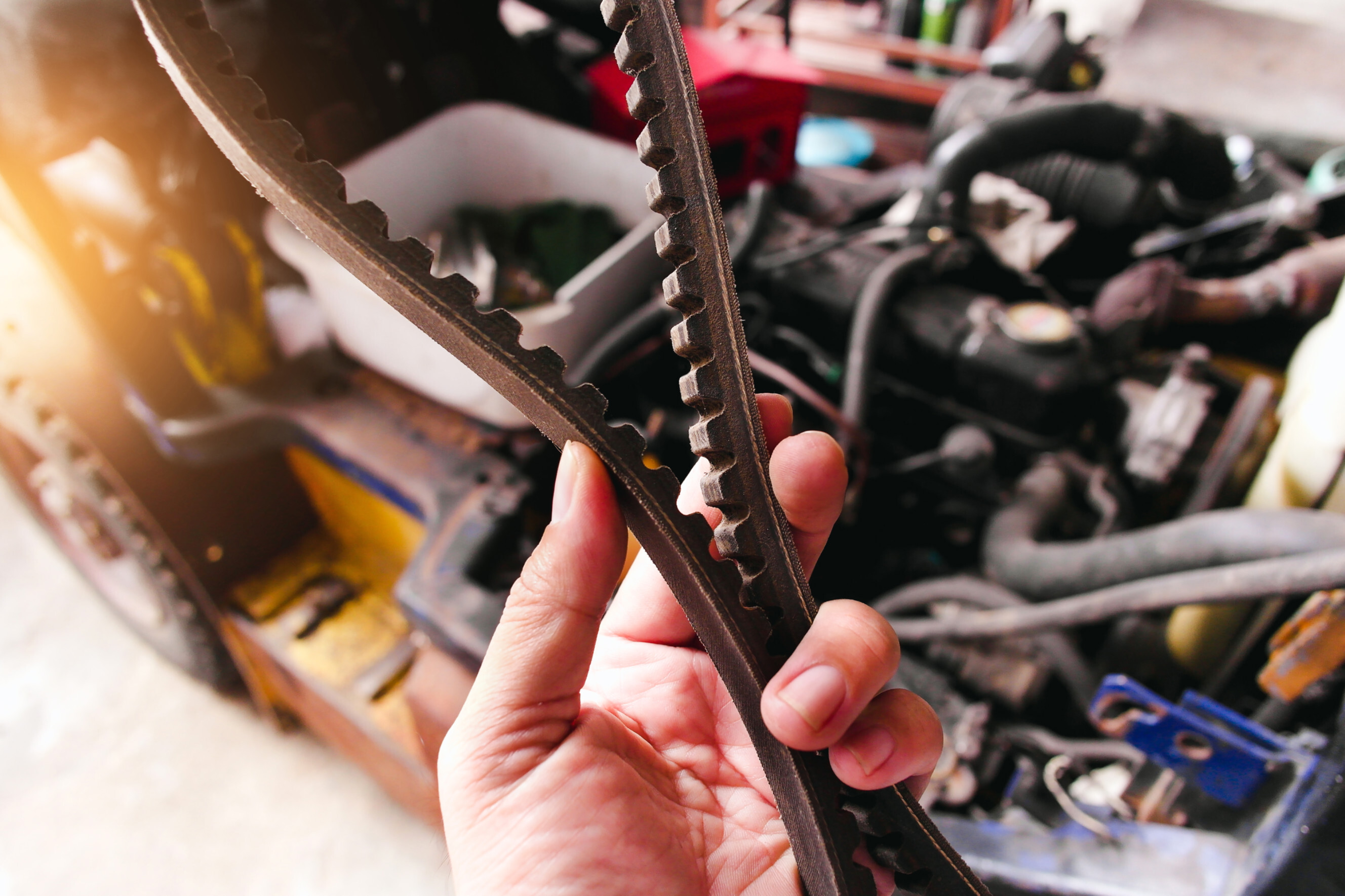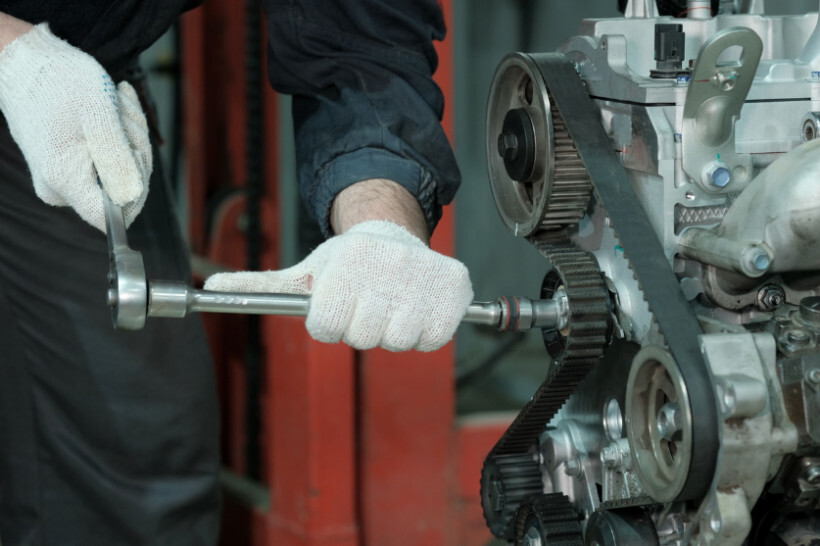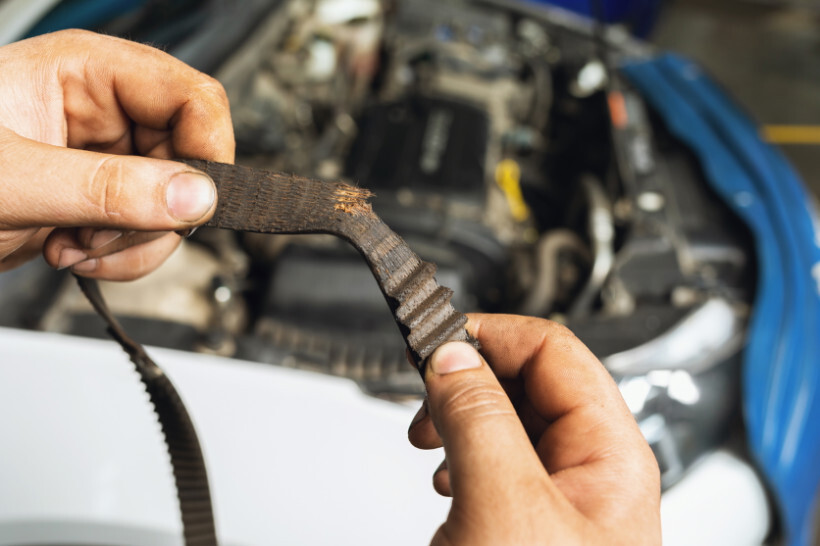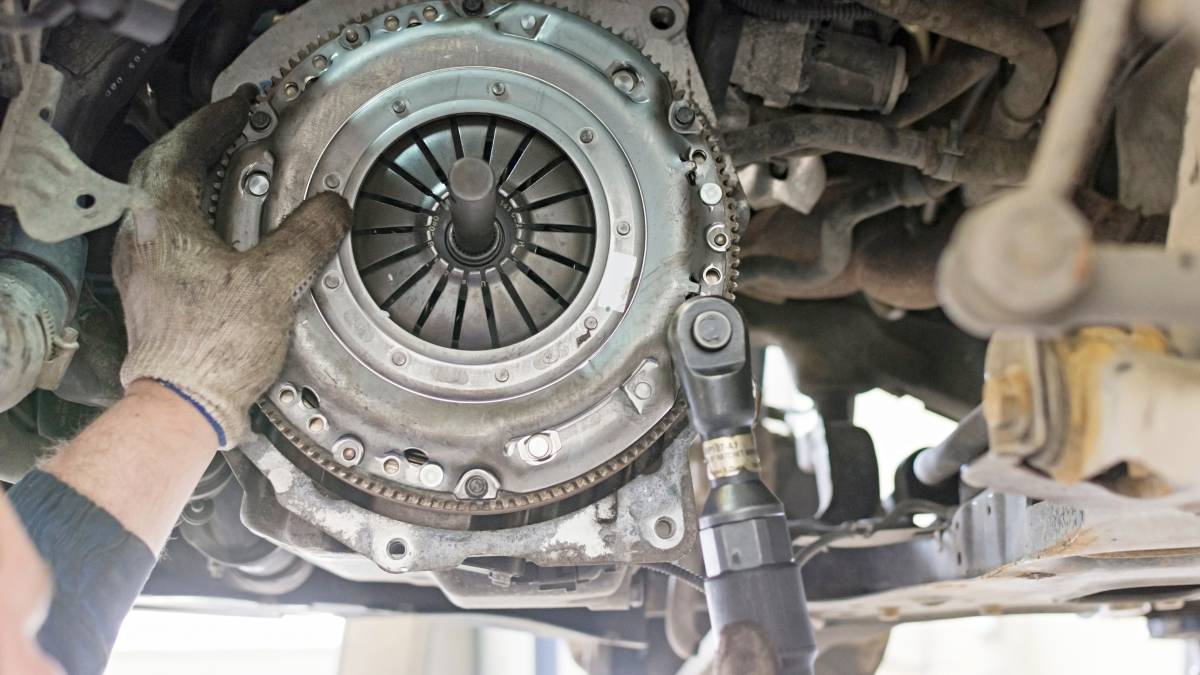- Home/
- Costs/
- Timing Belt Replacement/
- Timing Belt Replacement Cost Guide

How much does timing belt replacement cost in Australia?
Get a free quote nowPost to find a price. It's free and only takes a minute.
Average price (part + labour)
$520 - $1,400
low
$520
median
$960
high
$1,400
Last Updated on

Written by Angela A.
Staff Writer
Read more about our contributor
Key Facts
Timing belt replacement prices in Australia vary widely, with costs ranging from $520 to $1,400.
Labour costs in urban areas like Sydney are significantly higher than in rural regions, often adding $100 or more to the bill.
Certified mechanics with expertise in your car model are crucial for ensuring accurate installation and preventing engine damage.
The timing belt is a vital part of your car’s engine. After all, it ensures that all components work together smoothly. But over time, this crucial part wears out and must be replaced to avoid costly damage.
In Australia, the typical timing belt replacement cost is between $520 and $1,400, depending on your vehicle and the complexity of the job. This guide will explore the factors that influence cambelt costs further. From labour rates to the quality of components, we’ll help you budget effectively and keep your car running at its best.
What are the average costs of timing belt replacement in Australia?
|
State/City/Area |
Average labour cost of timing belt replacements |
|---|---|
$580 – $1,400 |
|
$550 – $1,350 |
|
$540 – $1,320 |
|
$570 – $1,250 |
|
$530 – $1,200 |
|
$520 – $1,150 |
|
$560 – $1,300 |
The average timing belt replacement cost in Australia ranges from $520 to $1,400, depending on factors like your car’s make and model, the complexity of the job, and local labour rates. For smaller cars, you can expect costs closer to $520, as the belt is easier to access. On the other hand, premium vehicles often push the cost to $1,400 or more due to intricate disassembly and higher expertise required.
The location also impacts pricing. In major cities, rates hover around $580 to $1,400, while less populated areas offer more affordable options, starting at $520. In any case, labour makes up a significant part of the expense. Whilst cutting corners with cheaper materials may save you money initially, this could lead to faster wear or even engine damage.
Are timing belts and timing chains the same?
 A coiled timing belt with engine components around it. (Source: iStock)
A coiled timing belt with engine components around it. (Source: iStock)
The timing belt is an engine component made of rubber reinforced with fibres. It’s designed to synchronise the rotation of your engine’s crankshaft and camshaft. This ensures the engine’s valves open and close at the precise moments needed for efficient combustion.
Timing chains, despite having the same purpose, are made of completely different materials. They’re built out of metal and tend to last longer—often exceeding 160,000 kilometres with proper maintenance. But since they’re noisier and heavier, they’re still less common in modern car engines.
What factors affect the costs of timing belt replacement?
As previously mentioned, the cost of timing belt replacement can vary widely due to several factors, from the make and model of your car to labour rates in your area. Let’s break these down in detail below.
Vehicle make and model
| Vehicle make and model | Average labour cost of timing belt replacements |
|---|---|
Honda Barina |
$520 – $950 |
Mitsubishi 380 |
$600 – $1,150 |
Volkswagen Crafter |
$850 – $1,400 |
Ford Ranger |
$900 – $1,500 |
Holden Captiva |
$750 – $1,300 |
Mitsubishi Magna |
$580 – $1,000 |
Subaru (various models) |
$800 – $1,400 |
BMW (various models) |
$950 – $1,650 |
Understanding your car’s requirements is key to planning for timing belt replacement. After all, your car’s make and model greatly impact the overall cost.
For instance, Subaru timing belt replacement costs $800 to $1,400, as their Boxer engines are compact yet intricate. Similarly, BMW timing chain replacement costs in Australia are between $950 and $1,650 due to the need for technicians experienced in handling premium engine parts.
In contrast, the cost for a Honda Barina is lower, between $520 to $950, due to its simpler engine design and affordable components. Similarly, replacing the timing belt on a Mitsubishi 380 and Mitsubishi Magna is $600 to $1,150 and $580 to $1,000, respectively.
For mid-range cars like the Holden Captiva and the Ford Ranger, you can expect to pay between $750 to $1,500. Meanwhile, the same service for a Volkswagen Crafter will have you shelling out $850 to $1,400.
Geographic location
 Mechanic working on a car engine. (Source: iStock)
Mechanic working on a car engine. (Source: iStock)
Where you live in Australia significantly affects the cost to replace a timing belt. In Sydney, prices are among the highest, ranging from $580 to $1,400, because of the high cost of living and greater demand for skilled mechanics in the area. In Perth, costs fall between $570 to $1,250 due to its similar urban nature and competitive rates.
Other cities, such as Melbourne and Canberra, offer slightly lower prices—averaging $550 to $1,350 and $560 to $1,300, respectively. But other areas like Brisbane and Adelaide see wider pricing, with costs ranging from $540 to $1,200, depending on service availability.
Out of all the areas, Newcastle offers the most affordable rates. You can get your timing belt replaced there for just $520 to $1,150, so it’s ideal for those seeking budget-friendly options.
Complexity of the job
 Mechanic replacing a timing belt. (Source: iStock)
Mechanic replacing a timing belt. (Source: iStock)
The complexity of the job, especially for vehicles with intricate engine designs, also bumps up the pricing. Cars requiring extensive disassembly result in higher labour fees due to the time and skill involved.
For vehicles requiring additional diagnostics or component replacements, expect costs to rise even further.
Price of parts and labour
|
Additional parts needed |
Average costs |
|---|---|
Timing chain |
$1,500 – $4,000 |
Drive belt |
$150 – $350 |
$120 – $300 |
Parts and labour are the two major drivers of timing chain belt replacement costs. A standard replacement ranges from $520 to $1,650, but any additional repairs needed will add a few dollars to the total price.
For starters, some garages also recommend replacing related components at the same time. Simpler parts, such as the fan belt, range from $120 to $300. Meanwhile, drive belt replacement costs $150 to $350 if they’re worn or damaged.
For more extensive repairs, you might also be advised to replace your existing timing belt with a timing chain. Timing chain replacement costs in Australia can go from $1,500 to $4,000.
Emergency service fees
| Diagnostic and emergency services |
Average service fees |
|---|---|
$100 – $300 |
|
$80 – $200 |
Emergencies often mean higher costs, too, especially when you end up needing a mobile mechanic or same-day repairs. Mechanic call-out fees typically range from $100 to $300, depending on the urgency and location. Adding a diagnostic test to assess timing belt issues costs another $80 to $200, helping pinpoint the exact problem before repairs.
For immediate fixes, a timing belt change’s price combined with diagnostics and labour can quickly increase, particularly if parts need to be sourced quickly. Regular garages may offer more affordable options but know that emergencies often mean paying higher for convenience and speed.
What are the warning signs to watch out for before a timing belt breaks?
 Close-up view of a worn timing belt. (Source: iStock)
Close-up view of a worn timing belt. (Source: iStock)
Driving conditions, weather, and even your habits behind the wheel can accelerate timing belt wear. Ignoring the signs could lead to significant engine damage and expensive repairs down the road. Here’s how to spot the warning signs early:
Unusual noises: Ticking or clicking sounds from the engine might indicate a worn or loose belt. Squealing or grinding noises suggest alignment or tension issues.
Engine performance issues: Misfires, sluggish acceleration, or trouble starting the car could mean the belt isn’t keeping the engine synchronized.
Visible damage: Cracks, fraying, or missing teeth on the timing belt are clear indicators that it needs replacement.
Rough idling or vibrations: Poor belt tension can make the engine shake or idle roughly.
Burning rubber smell: Overheating from friction could mean the belt is slipping or misaligned.
While these symptoms often point to a failing timing belt, they could also signal other issues. Visit a mechanic for a diagnostic test to confirm the problem and avoid more extensive damage.
What are some ways to save on timing belt replacement?
 Mechanic holding a new timing belt. (Source: iStock)
Mechanic holding a new timing belt. (Source: iStock)
Car maintenance is essential, but it doesn’t have to break the bank. Instead of worrying about how much do timing belts cost to replace, think of how you can save while ensuring quality work. Here are some practical tips to help you:
Replace related components like the water pump and tensioners at the same time to save on labour costs. Bundled replacements typically cost less compared to separate services.
Local garages charge less than dealerships, so opt for mechanics in your area.
Always request quotes from at least three mechanics to find the best deal.
Look for online promotions, loyalty discounts, or special offers at garages or chain service centres.
High-quality aftermarket timing belts offer savings over original equipment manufacturer (OEM) parts.
Frequent checks during routine servicing can catch wear early, so don’t skimp on regular inspections.
What should you look for in a professional mechanic?
 Mechanic repairing a car engine in a garage. (Source: iStock)
Mechanic repairing a car engine in a garage. (Source: iStock)
Choosing the right mechanic is critical not just to ensure quality work is done on your car but to also avoid unnecessary costs. Here’s what to consider when evaluating your options:
Look for certifications and credentials. Choose mechanics certified by recognised bodies like the Motor Trades Association of Australia (MTAA) or the Institute of Automotive Mechanical Engineers (IAME).
Ensure experience with specific models. Before getting any car service, make sure the mechanic has experience with your car's make and model. This is especially important for vehicles with custom designs, where the timing belt replacement price can be wildly different.
Read reviews and testimonials. Look for consistent positive feedback, particularly about timing belt replacements.
Ask for a detailed quote. Request itemised quotes, including costs for parts, labour, and any related services. Knowing exactly what’s included in the service can prevent hidden charges.
Go local. Trusted local mechanics often provide personalised service and competitive pricing compared to larger chains.
Get your timing belt replaced by skilled professionals on Airtasker
Your car’s timing belt is essential to keeping your engine running smoothly, so don’t skimp on routine timing belt changes, and don’t ignore urgent replacement needs.
Fortunately, finding the right professional is simple. Post your task, compare quotes, and choose from verified workers who specialise in car maintenance on Airtasker. Take advantage of a convenient way to connect with experts who can handle the job with care and precision.
Learn more about our contributors

Written by Angela A.
Staff Writer
Angela Apolonio is an experienced writer with a Biology background. She writes about home tips, car upkeep, gardening hacks, and food facts, bringing a unique blend of science and practicality to her work. As a wife and a mother, she knows the value of iron-clad routines, so she's passionate about sharing what works for her with everyone else. She loves making everyday life simpler and helping readers find fresh ideas to bring more joy into their spaces.
FAQs on timing belt replacement costs
Timing belt replacement typically costs between $520 and $1,400, depending on the car’s make, engine type, and additional components needed. Small cars, such as the Toyota Corolla, cost $530 to $820, while luxury models like Audis or Subarus range from $850 to $1,350.
In Perth, timing belt replacement costs range from $570 to $1,250 due to local labour rates. Adding other part replacements or repairs can increase the cost by $100 or more.
Replacing a timing belt is labour-intensive, requiring 2 to 6 hours of precise engine work. Additional costs come from replacing related components like drive belts and fan belts to prevent future repairs.
Timing belts last between 40,000 and 155,000 kilometres—or 5 to 10 years—depending on the car’s make and driving conditions. Regular maintenance and inspections can extend this lifespan, while delays risk catastrophic engine damage, which can cost up to $5,500.
Find timing belt replacement specialists, fast
Post a task
Related price guides
Related articles







